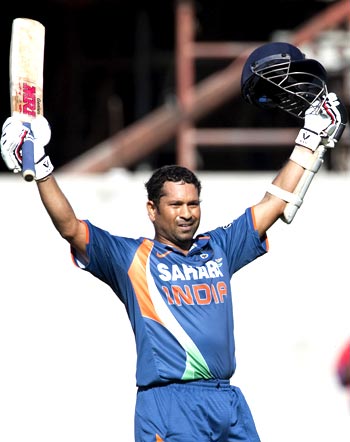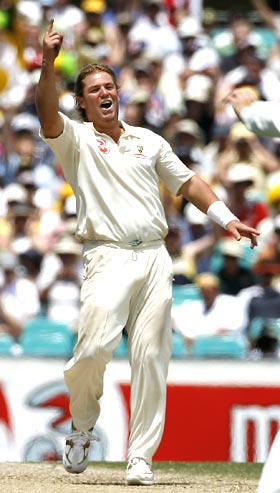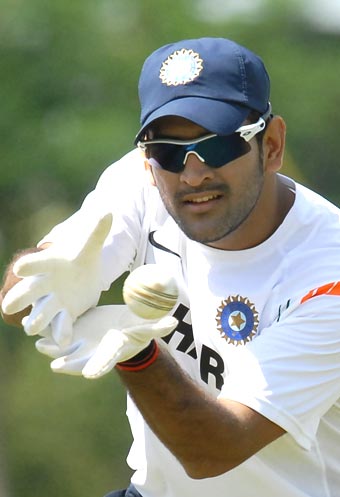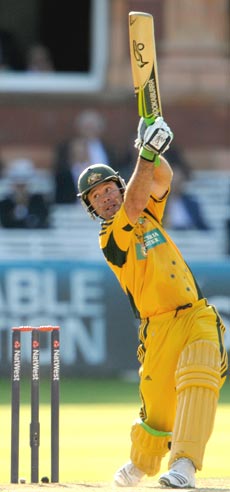 | « Back to article | Print this article |
Should there be a new format for ODIs?
If the highest run-getter in the history of one-day cricket speaks of the need to change the format of ODIs, surely there is something seriously wrong.
Recent weeks have seen a raging debate on the future of the 50-over game against the backdrop of the rise of the T20 format, and the debate reached a peak with Sachin Tendulkar suggesting that it needed to be split into two innings of 25 overs per side in order to dilute the undue importance of the toss, and to keep interest alive.
"Today, we can tell the result of close to 75 per cent of matches after the toss. We know how the conditions will affect the two teams. But it [his suggestion] is not too dependent on the toss, because, for example, if it's a day-night match then both the teams will have to bat under lights," Tendulkar said.
Scrap the 50-over format, says Warne
Elsewhere, the game's iconic spinner Shane Warne wants the 50-over format scrapped altogether, arguing that with T20 having taken root, cricket will be much better off with just two formats.
Dhoni loves the 50-over format
Mahendra Singh Dhoni disagrees with both.
"Personally, I love the format the way it is. Test cricket has got its own challenges in its own way, Twenty20 cricket is a different format altogether and, in the same way, I respect the one-day format also," Dhoni, currently the leading batsman in one day cricket, said.
One-day cricket will survive, says Harsha Bhogle
Renowned commentator Harsha Bhogle says despite the backlash, one-day cricket will continue to survive in some format or the other.
"Everyone has to start moving towards T20, and that is why I think there is a place for 50 overs cricket as a bridge between these two. My feeling is 50 overs will either undergo a metamorphosis, become two 25-over games or whatever people have come up with, which in a sense is a longer T20 game, or you might start having bilateral fifty over games becoming lesser and lesser, and have only Champions Trophies and World Cups," he said in an interview to Rediff.com.
With ECB scrapping ODIs domestically, they could die a slow death
The administrators have plenty to ponder, with opinions spanning both sides of the debate coming through thick and fast. The ICC recently said it was in favor of giving the Tendulkar plan a trial -- and if it clicks, 2011 could well see the last World Cup in the existing 50-over format. The England and Wales Cricket Board meanwhile has already scrapped the 50-over game from its domestic calendar for the 2010 season.
So what is the heartburn all about?
The sticking point seems to be the 25 overs between the 15th and 40th over in an ODI innings -- that period of play when the batting side looks to consolidate by knocking safe singles around.
ODIs have become predictable
Simon Barnes put it aptly in his column for the Times: "The game has been rumbled. The players have worked it out. As a result, now that 50 overs is the standard format for a one-day international, we have a period between the end of the fifteenth over and the start of the 41st in which the batters tip and tap their way on in nudged and nurdled singles that the fielding side are perfectly happy to concede. Meanwhile, the bowlers send down slowed-down seamers or speeded-up spinners, aimed to prevent boundaries and there, by definition, to permit singles.
"It's become a convention, a sort of non-aggression pact, a Christmas truce that lasts for 25 overs. You score at 4.2 an over in this period and try to restrict the opposition to 3.7. You don't score too fast and we won't bowl too nastily."
So should the ODIs stay as is? Should it return in the new clothes designed by Tendulkar? Or should it be scrapped altogether, as Warne and others have suggested?
Call it as you see it.





